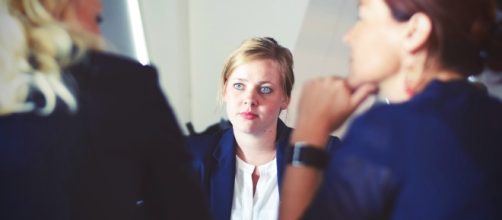The job interview is almost coming to an end, but one question remains. "What is your greatest weakness?" asks the interviewer. The interviewee faces the moment of truth. Should he/she lie or be truthful? Should he/she give a common answer like, "I'm a perfectionist," or should he/she try to be different? Between 65 and 92 percent of people misrepresent themselves at job interviews, according to previous research. A recent Study published in the Journal of Applied Psychology suggests that we are more likely to be successful at job interviews if we choose to be honest about our Weaknesses.
Job interviews and self-verification
"Self-verification" is the concept that psychologists use to refer to people's desire "to be seen by others in the same way they see themselves." Job interviewers found such people to be transparent and sharp. On the other hand, they found the interviewees who attempted to portray a perfect image to be "inauthentic."
The subjects of this study were 2000 people who were applying for jobs in the US. During their job interviews, those who used self-verifying language were found to be more successful. This included words like “think,” “sense” and “feel." The interviewers were able to understand that this candidate was smart enough to want to open up.
Honesty is not always the best strategy during job interviews, explains the study.
Only people that can use honesty to their advantage are encouraged to do so. On the other hand, for those whom honesty would be a disadvantage should refrain.
Honest candidates boost their chances of landing the job
Three studies were conducted, and the importance of self-evaluation was at the core of each one of them. In the first study, 1240 teachers around the world were analyzed. The candidates who were described as being highly qualified had a 51% chance of landing the position. For those who also transmitted a desire to open up and be honest about themselves, this number became 73%.
The second study took a similar approach. In this case, the candidates were 333 lawyers who were seeking positions in a branch of the US military.
The quality candidates saw a quality increase in their chances of getting the jobs once they showed "a strong drive to self-verify." Their chances went from 3% to 17%. Finally, the third study tested "the mechanism behind the effects observed."
Dr. Sun Young Lee, professor at UCL’s School of Management and co-author of the study, said, “People are often encouraged to only present the best aspects of themselves at interview, so they appear more attractive to employers, but what we’ve found is that high-quality candidates – the top 10% – fare much better when they present who they really are.” However, she could not say the same about people who were unqualified. These people would only hurt their chances of attaining the job if they were to be honest about their weaknesses.


